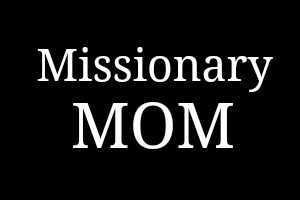“Every position in the Church requires an effective teacher.”
~Elder L. Tom Perry
In some callings, such as Primary teacher or Gospel Doctrine teacher, this quote is obvious. As we consider other callings, this teaching component may be a bit more difficult to see.
We teach as we mentor and show a better way to move forward. Our Savior is the perfect teacher—in everything He did, there are lessons for us to learn. Do we follow His example as we serve? Do we use every interaction as a teaching opportunity?
The Savior loved those He taught and served. Each of us thrives when we are with someone who genuinely loves us. As each of us is a teacher, loving those we teach is our first priority.
But, sometimes, people act stupid, which is annoying. How do we love the annoying ones?
Seriously? How hard is it to merge onto a highway? Or what about the use of the words: there, their, and they’re?!?
Show Compassion
That final example of people’s so-called stupidity used to make me wince inwardly every single time I saw these words misused. Then, with the life experiences of mothering a daughter who struggles with speech apraxia and language learning disabilities and another daughter with severe dyslexia, I learned to have compassion for the incredible struggle some individuals have to simply write out their thoughts, much less to understand the differences in words that sound exactly alike. The English language is HARD!
We learn to love someone who annoys us by learning to have compassion for their unique, individual struggles. Suddenly, what we once viewed as “stupidity” becomes a marvel of determination and courage as they have overcome incredible difficulties to be where they are.
A girlfriend of mine was raised in a home where negative emotions were strictly taboo. If you felt angry or sad, you left the room, pushing those negative feelings aside. In the early years of our friendship, I used to wonder at her obliviousness to the pain of others. She would simply look the other way if someone was emotionally hurting. If an uncomfortable topic of conversation arose, she would quickly change the conversation to something inappropriately trivial.
This woman is someone I love and admire in so many, many ways. Yet, this trivializing of someone’s pain was making it hard for our friendship to progress. It wasn’t until she shared with me her upbringing that I came to fully appreciate her journey in learning how to be vulnerable. She had to learn how to be empathetic rather than looking away. Her struggles aren’t as obvious as my dyslexic daughter’s, yet they are just as real.
Give those you are working with the benefit of the doubt. Show the compassion and empathy you would have shown to you. Perhaps you are comparing your strength with their weakness, which is unfair and unkind.
If someone doesn’t know there is a better way to do something, they will continue to do so to the best of their understanding. We can’t condemn someone for lacking knowledge. As a teacher, it is our responsibility to help those we mentor see a better way to move forward.
Communicate
As an editor, I know the importance of communication with those we teach.

“Perhaps my editing skills are better, but I need to know what the author is trying to say before I grab the steering wheel!”
Before I make any changes to an author’s work, we review the piece together. This is their work, not my chance to show off my own writing skills. It is important that I understand what they are trying to communicate. If I were to make changes without understanding their purport, it would be like taking over driving a car without knowing where the destination is. Perhaps my editing skills are better, but I need to know what the author is trying to say before I grab the steering wheel!
It’s also important that those we serve with ask if something is explained that isn’t understood.
I am taking opera lessons from an incredibly gifted teacher. He often sprinkles in Italian musical phrases that I just don’t understand. The first lesson, I just nodded my head and hoped that understanding would eventually come.
He then expected me to make the requested changes! His frustration with my lack of cooperation was visible and made it very difficult for me to feel comfortable singing.
In time, I gained the confidence to stop him mid-sentence and ask what glissando or animando means. When I don’t understand his description, I ask him to demonstrate. He has YEARS of vocal training and performance to my few lessons! Of course I’m not going to understand everything that has taken him years of experience to learn!
Ask. Learn.
Try a New Approach
Which brings us to our final teaching skill. Flexibility!

Each of us is wonderfully unique. There is no one teaching approach that will reach every person. Change it up!
The definition of insanity is doing the same thing over and over again and expecting different results.
No one quite knows who coined the phrase, but I’m sure all of us have caught ourselves in this pattern of doing the same thing and hoping for a different result.
As a teacher, observe those you are serving. If you see the same actions you tried to modify, perhaps the better way hasn’t been understood. Each of us is wonderfully unique. There is no one teaching approach that will reach every person.
Change it up!
Try having more mentoring. The best approach for us to learn a better way is to work with someone who has already mastered the necessary skills.

To read more of Emlee Taylor’s Missionary Mom moments, click here.
Try adding some fun. Years ago, I taught my oldest daughter’s primary class. This class was large and very disruptive. However, within a few weeks, the class was behaving and LOVED coming to class. Why? Because I frankly told them, “This can be a fun class, or it can be boring. You guys get to pick. If you want boring, then be really loud, so I know we need to practice reverence during class. If you want more fun, then be really reverent, so I know we need more fun!”
These wonderful children are now young adults who will come up to me and laughingly remind me of the time we interviewed the prophet Noah for a television news program. These children wanted to learn—they didn’t want to be lectured! Make it fun. You have unique talents that can add flavor and variety as you teach—use them!
Love those you serve. Communicate with them, so you become one. Use the incredibly unique skill set that is yours alone to bless their lives and to help move the Lord’s Kingdom forward.
Growing up all over the world gave Emlee Taylor an opportunity to see the incredible differences the Lord created in humanity; and even better, the passions we all share as members of the human race: love for family, faith, & a desire to make a difference.
Emlee lives life with passion—focusing her time now on raising four children and teaching them to recognize truth and to live true to that truth, regardless of others’ expectations. Emlee is passionately in love with her bestest friend and husband of more than 20 years.




